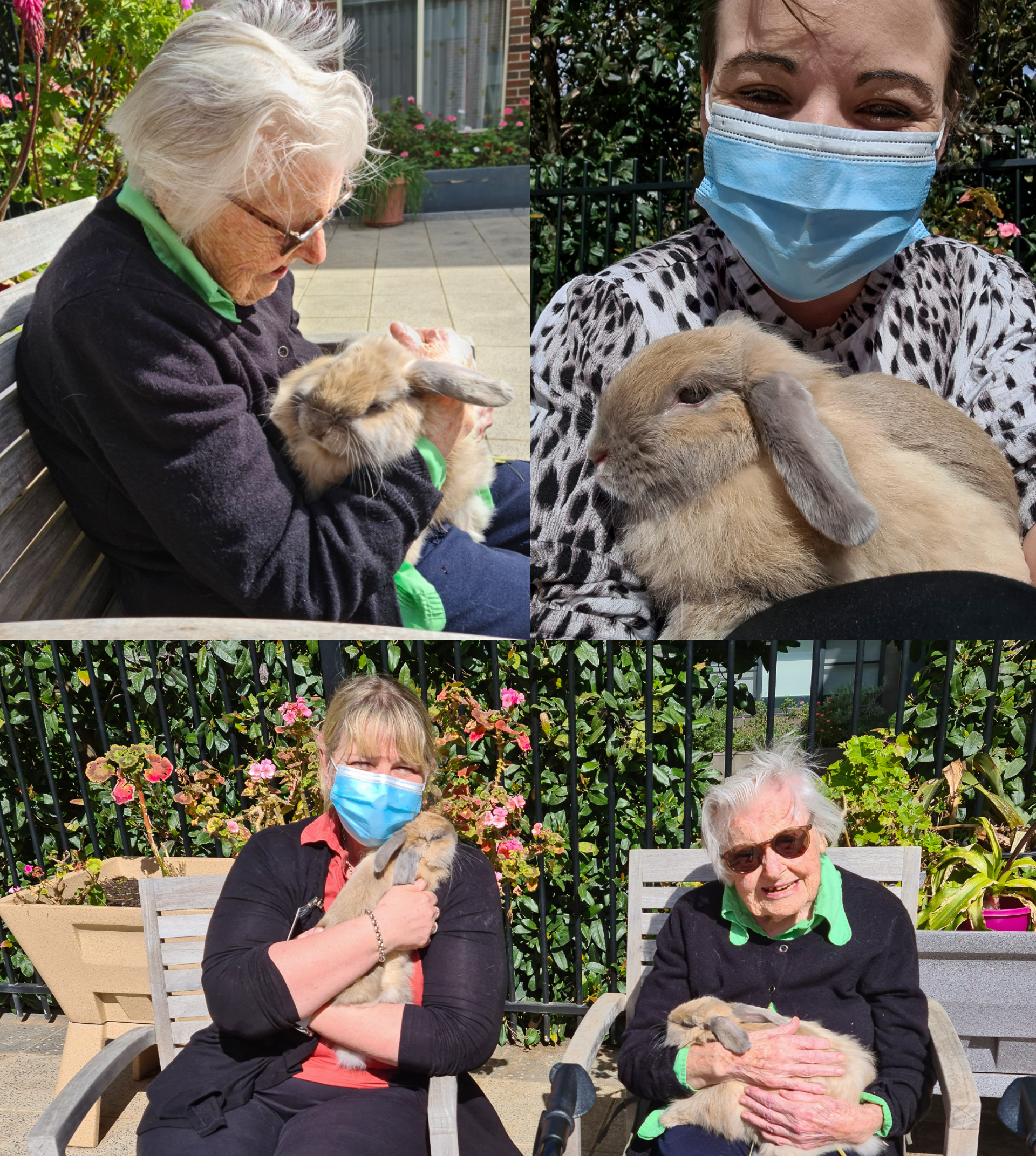As a country, we love animals. Over 60 per cent of Australian households are a home to pets, so we’re very aware of the joy they bring us. Whether it’s the welcoming wag of a tail or the comforting purr in our lap, pets of all shapes and sizes have the ability to calm us, motivate us, promote feelings of companionship and even encourage socialisation. This is true for the young and the young-at-heart, and animal assisted therapy is having an incredibly positive impact in the aged care sector.
What is pet therapy?
Pet therapy, or animal assisted therapy, is a term we’re hearing with greater frequency these days. Simply put, it’s about improving people’s lives in a variety of ways with the help of animals. Research is constantly showing that owners of pets are the beneficiaries of numerous psychological and physiological benefits. Compared with non-pet owners, they:
- Have lower blood cholesterol and blood pressure, on average.
- Visit the doctor less frequently, use less medication.
- Cope with stress better.
- Recover more rapidly from illness.
- Lower levels of heart disease-related risk factors.
But you don’t have to own a pet to get the benefits. It’s not unusual to see a furry friend padding the corridors of oncology wards in hospitals around the world. A short visit with a gentle and inquisitive animal helps patients dealing with chemotherapy and other invasive treatments to reduce stress levels, promote positive feelings of joy and optimism and take their mind away, even if only for a short time, from their daily routines.
Pet therapy in aged care
Moving to a new place is often stressful and draining. Moving into an aged care facility is no exception, and the experience can be particularly painful for those who have to part ways with beloved pets. A visit from a therapy animal can really help ease the transition.
More broadly, pet therapy can be of great assistance to anybody in aged care who may be suffering from loneliness or isolation. As physician and researcher Ann Berger explains, ‘[therapy animals] are very present. If someone is struggling with something, they know how to sit there and be loving. Their attention is focused on the person all the time’.
Animals can be gentle and attentive, and the simple act of petting them has been shown through research to decrease levels of cortisol (a stress-related hormone) and lower blood pressure. They are a tonic for loneliness and help to improve people’s moods, and they can even be a kick-starter for conversation between staff and residents.
Pet therapy for people with dementia
Pet therapy can be of particular benefit to those living with dementia. While a lot of us can derive peace and pleasure from petting animals, the activity of gently stroking an animal can be particularly soothing for those with dementia, who are greatly calmed by simple and repetitive tasks.
It’s also a fantastic opportunity for them to get involved in sensory experiences, the opportunity for which is greatly diminished as their autonomy declines. Several studies have found that people living with cognitive impairments experience reduced anxiety and an elevation in mood, as well as increased physical activity, when interacting with animals. The calming effect of pet therapy cannot be underestimated, and it’s a powerful antidote for difficult behaviours.
BASScare’s own furry friends
In celebration of the power of pets, BASScare has its own resident furry therapists. Peta and Charlotte (Charlie for short) have been a huge success, coaxing numerous clients to reminisce about their own bunny, the rabbits on the farm, and even (don’t tell Peta and Charlie) hunting rabbits!
These two are placid, gentle creatures who love nothing more than sitting on a lap. Our visiting Mobile Vet, who regularly drops in to check up on their general health and give inoculations, speaks highly of how well trained and calm they are.
Peta and Charlie have been an amazingly beneficial addition to the BASScare family.



No Comments
Feel free to comment. We wanna hear you thoughts, your feedback or your opinion.